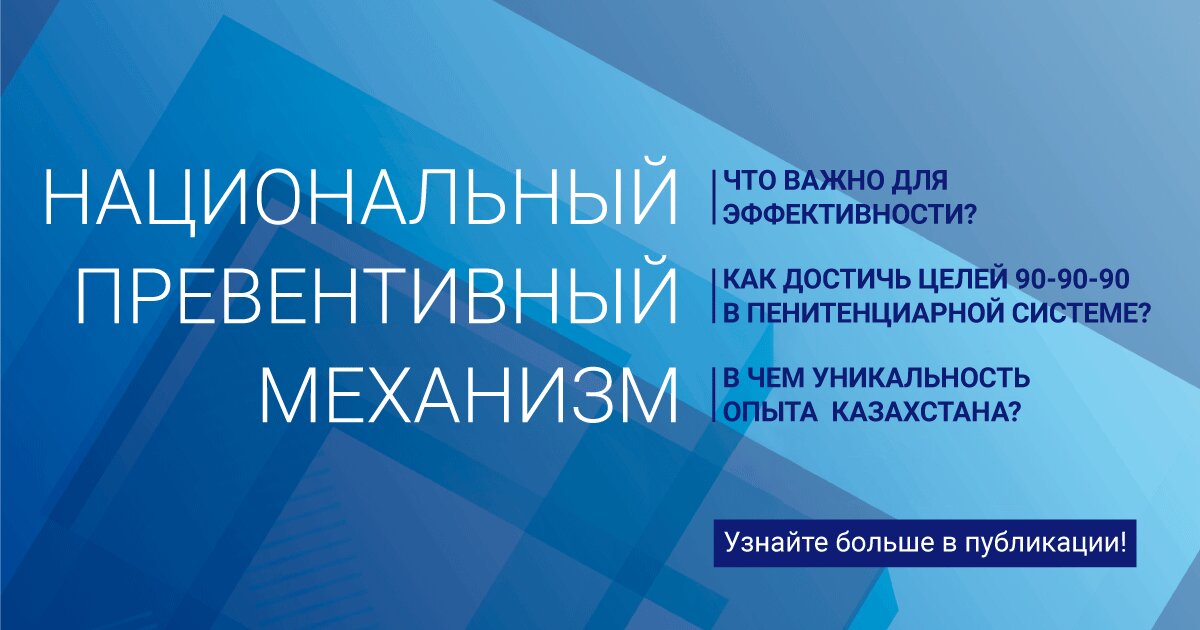As part of the Alliance for Public Health regional project “Sustainability of HIV services for key populations in EECA region” (#SoS_project), a study was conducted in Kazakhstan on the observance of human rights in places of detention.
For three years, local experts have carried out systematic work aimed at strengthening the capacity of civil society organizations and supporting monitoring of the situation with access to services and rights in the penitentiaries of the country, and also prepared a concept for achieving the 90-90-90 goals in the penitentiary system, which ensures unity of the state approach with the approaches used in the public sector. The result of their work was a unique publication of its kind.
According to Alexander Gatiyatullin, co-author of this material on the national preventive mechanism in the countries of the EECA region based on the experience of Kazakhstan: “This publication has no analogues. Now community representatives have clear algorithms for joining the functions of the NPM: through participation in the work of regional groups and the opportunity to undergo preliminary training in order to understand the essence of the national preventive mechanism. The material focuses the attention of the participants of the NPM of the Republic of Kazakhstan on problems, related to the HIV/AIDS epidemic in penitentiary institutions. Previously, when making preventive visits to places of detention, there was no such close attention to the availability of services for the prevention and treatment of socially dangerous diseases. All this enhances the effectiveness of the NPM, as it allows you to avoid a purely legal approach to the problem through the involvement of specialists in various fields – psychologists, sociologists, social workers, doctors, teachers.”
The publication talks about new vectors of cooperation between key populations and national monitoring mechanisms to achieve the 90-90-90 goals in prison systems.
“We always work with the understanding that preventive work in the context of health in the penitentiary system can only be effective if close cooperation and a good level of mutual understanding of all stakeholders: state bodies, penitentiary institutions and non-governmental organizations are developed. Our activity is aimed at creating a full-fledged opportunity to exercise their right to the highest attainable level of physical and psychological health, guaranteed by the state.During 2019-2021, we managed to carry out a number of strategically important activities regarding HIV prevention and support for PLHIV who are in prison.We want to share our best practices and success, as well as to set an example for other countries in the EECA region so that they can apply our results in practice.” – Lyubov Vorontsova, project coordinator of the Central Asian Association of People Living with HIV and Director of #SoS_project in Kazakhstan.
We invite you to read the publication by the following link (please note, the publication is in Russian for now).

